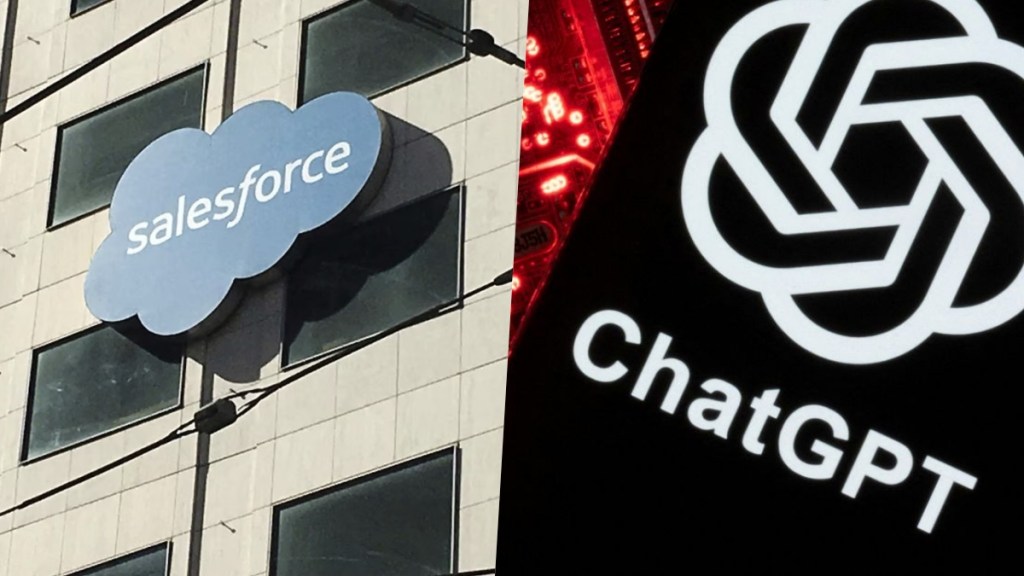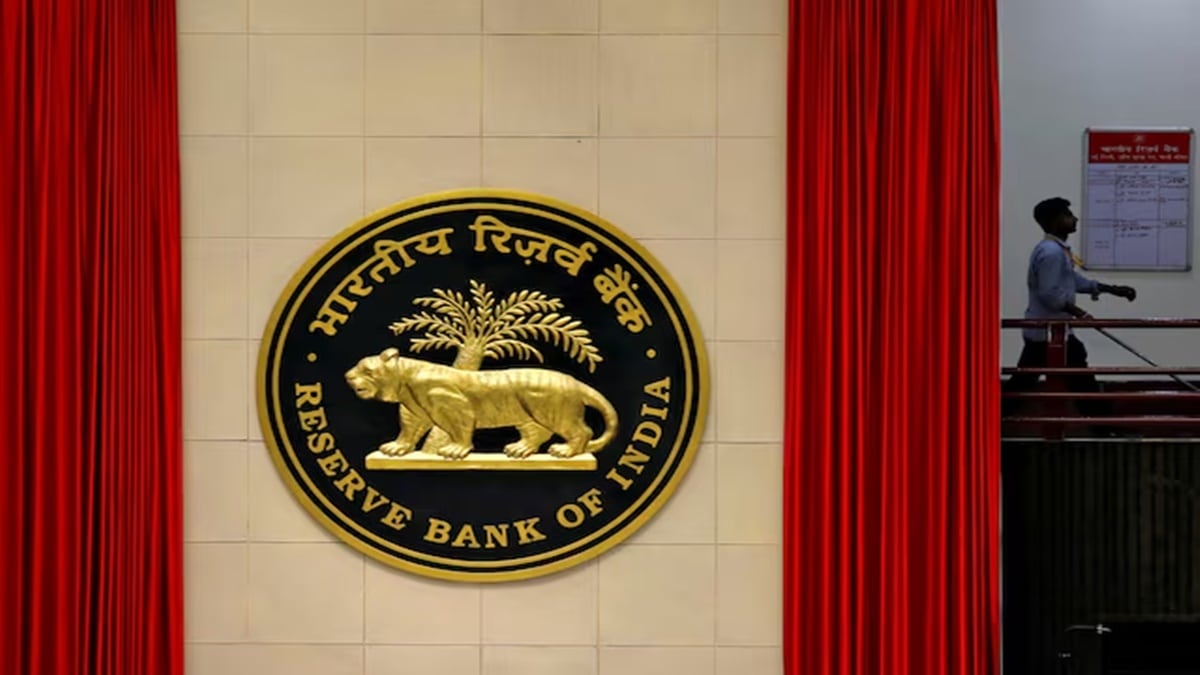Generative AI-based technologies like OpenAI’s ChatGPT have the potential to fundamentally change how several roles are delivered but they can also open a window of opportunity to do more value-added work, Salesforce India Vice President (Solution Engineering), Deepak Pargaonkar told FE. What that means is that while concerns of ChatGPT taking your job aren’t completely unfounded, Indian engineers –at least— have nothing to worry about.
The senior Salesforce official further said that India is at the leading edge of these technologies in terms of both understanding as well as deployment while adding that in order to be able to use them more efficiently, some guardrails also need to be put in place. Excerpts.
Why is Generative AI such a big deal in 2023 and how is Salesforce approaching it?
We have been doing a lot of work when it comes to AI. Einstein AI is baked into each of our solutions, which has been driving customer use cases like – the ability to do lead scoring, service, etc. We have a huge amount of data about our customers’ customers. For example, a business managing B2C consumers with Salesforce, manages the acquisitions, customer service, and marketing, generating a huge amount of data. In this scenario, a customer service executive has to answer questions from a consumer, which needs elaborate content generation. Towards this, we are trying to help organisations by delivering Einstein GPT models. We are giving power to our customers to use Einstein GPT to generate content, which is relevant for their business scenario. At the end of the day, these are language models which create a text, an audio, or an image. This enables the customer executive to structure an appropriate communication and send it to the customer.
Also Read | Gaming becoming “serious” career option in India, gaming PCs bucking sales trend: HP’s Vickram Bedi
Einstein GPT for Sales can auto-generate sales tasks like composing emails, scheduling meetings, and preparing for the next interaction. Einstein GPT for Service can generate knowledge articles from past case notes, and auto-generate personalised agent chat replies to increase customer satisfaction through personalised and expedited service interactions. Einstein GPT for Marketing can dynamically generate personalised content to engage customers and prospects across email, mobile, web, and advertising. Einstein GPT for Developers can improve developer productivity with Salesforce Research’s proprietary large language model by using an AI chat assistant to generate code and ask questions for languages like Apex. Einstein GPT for Slack Customer 360 apps delivers AI-powered customer insights in Slack like smart summaries of sales opportunities and surface end users’ actions like updating knowledge articles.
Where is India placed as far as your viewpoint is concerned on Generative AI – adoption?
No single interaction happens without a conversation about OpenAI or GPT, today. We talk to the leaders of our customer organisations, operational executives, senior functional leaders, and everywhere people are talking about the possibilities with ChatGPT. Customers are asking if we are in the hype-cycle, what are the relevant use cases, how are we working on them, and how they can leverage these OpenAI or GPT capabilities for their business. With technological advancements, customers are even talking about how they can manage any associated risk elements and that’s a great thing.
The technology is driving in a particular direction now. We have used it mainly in our capacities. While I have seen my child generating an essay out of ChatGPT, when it comes to business, customers want us to tell them how we can use this technology, what are the guardrails that we need to put so that essentially, we are using it in a very trusted and secure environment. Our observations about India are that we are actually at the leading edge of the technology, understanding, and ways of deploying it also.
Every market tends to have its own need and focus. Is there any specific comment that you have on India as a market when it comes to Generative AI? What does the current trend look like?
There are certain things as per the market and every market has its nuances. India means unprecedented scale, which, with our population, and the number of consumers that every organisation deals with, is humongous and it is practically going to be impossible for the organisations to manage these massive scales for everything. AI can be used for simple automated engagement with consumers. It’s going to be extremely important to leverage technology to address, manage, and scale so that the growth can also be managed, the costs could also be controlled, because one of the advantages that these technologies bring to the table is they can help you scale.
In India, scale proportions are very different, there are urban scales, there are rural scales. So, these new-age technologies must be leveraged. However, it is also extremely important to manage it appropriately. The models which generate some of the responses, we need to worry about their accuracy. We need to think about safety, how honest the model’s output is going to be in the sense that if an organisation is leveraging AI to generate a response or using a bot for some conversation, it should be transparent with the consumers about whether this is an AI-generated response, or this is a bot that is engaging with you. When we talk about biases, we want someone to be empowered to authenticate the data that the technology is generating. Say a particular response is generated, then what we are seeing is that rather than initially immediately sending it across to the consumer as a straightforward response directly from the system, share it with the agent, the agent will view that, empower the agent to authenticate that response and then communicate it.
So, when we talk about India as a market, one of the unique things is the scale and for that scale, to be managed, organisations need to know how to use technology. Apart from just technology, new developments in technology like AI, Generative AI have to be used so the organisation’s employees can be more productive, can be more efficient, as well as consumer engagement would be more interesting and value-added. But to do all of these things, some guardrails are also important. Organisations need to worry about safety, and accuracy, and to do all of that, you have to empower your staff so that there’s an authentication of the response that is getting created, especially talking about the Generative AI responses which are getting created. So, these are some of the things we are seeing in the market and we are also telling our customers it is our combined responsibility to leverage the technology with guardrails and also ethics in mind. Fortunately, because we already have an office of ethics in AI in Salesforce, we ensure all of these fundamentals which are necessary for any AI or even so Generative AI.
Is regulation the way forward for technology like this?
It is every organisation’s responsibility to deliver certain things with some basic premises being followed. If we consider that as a regulation, we are imposing on following certain guidelines. In particular, we want to cite the sources for accuracy. When we look at safety, we want to conduct maybe red teaming, what we want to do is regularly conduct bias or explainability and robustness assessment because the biases are the ones that are an inherent part of any AI model, including the Generative AI model.
Also Read | ChatGPT has an answer to all your questions, but can it do “this”?
We want to be honest, and we want to focus on sustainability also. Some models are so huge, but it’s not always the case that the largest is the best. We can create some well-trained simple and small models also, but guardrails are extremely important. Ethical use is essential, and towards that very specific way to drive accuracy, safety, honesty, and sustainability.
There are concerns that AI can take some jobs. Are they warranted? Is there a certain set of people who should be worried?
The majority of the initial part of structuring and creating content will possibly be done by the Generative AI. So, obviously it does impact the work that an individual is doing. But fundamentally, it [also] gives an opportunity to do more value-added work. It will be very cliched for me to say that every innovation cycle has always brought that fear but it always has got the positives also open. So yes, my personal view is it’s going to fundamentally change how several functions or roles are getting delivered. But what it does is, it allows doing more value adds. So Indian engineers have nothing to worry about.
A year ago, everyone was talking about Metaverse. Those conversations have slowly started to fade. Now, Generative AI is the new buzzword. Do you see it sticking around, if yes, where do you see it next five years down the line?
At Salesforce, we feel that there is a profound capability that organisations can leverage out of new-age technologies like Generative AI. Fundamentally because it helps the stakeholders, it helps the consumers, it helps employees and it helps organisations and those benefits are very real. Right now, I don’t really want to comment on the other parts of the technologies and how they will grow or the hype-cycle. AI in its current form is helping a lot. Generative AI technologies are going to help us as individual consumers and also the organisations where we create the content, textual content, image content, or maybe the audio and to add value to every stakeholder’s way of either working on living assessment is that organisations with the amount of data that they’re generating, and the engagement that they want to drive with the consumers of the world. Possibilities are immense. And looks like organisations will leverage one of these capabilities to drive our business outcomes.
Basis of our conversation, it feels India probably has a 1st-row seat in all of this. Where do you see this going in terms of India driving this technology forward. What do you expect from the talent space?
A lot of organisations and their huge amounts of tech development, are based out of India because of how engineers have progressed in the field of IT. In fact, many organisations like ours are focusing on a lot of startups, as they are doing innovative work in the area of AI or Generative AI. Organisations are encouraging these innovations from the engineers in India. So, I think India has an opportunity to be a part of this development cycle, and will adopt these technologies for the betterment of organisational efficiency and consumer experience.








